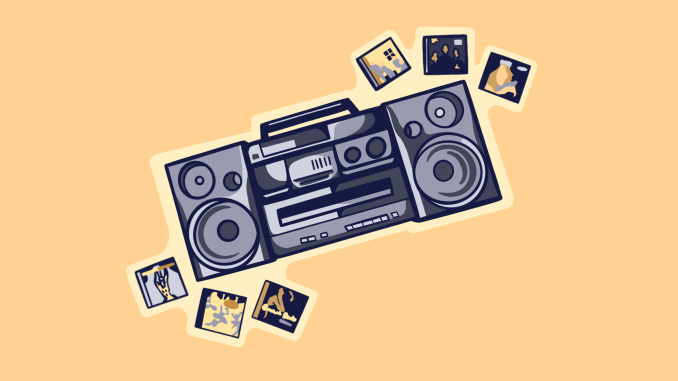
During winter break, I found my dad’s old CD player in the basement that I had never seen before. Its dust and dormancy reminded me of the three CDs I recently bought from Mostly Books, a second-hand media store on South Street. I knew I could put the player to good use with them.
However, I was a destructive kid who broke closet doors and pantry shelves, so my dad is often reluctant to let me borrow his things. I hesitated to ask my dad about using the player assuming he’d say what he usually said: no.
Growing up, I felt that my dad disagreed with nearly everything I did: who I spent time with, my priorities, among other things. It wasn’t surprising, my dad was always tired and rarely had enough energy to show his personality, making it hard for me to find common ground with him.
I feared taking his advice because we had such different opinions, and listening to him felt like rejecting my own ideals.
“Can you help me with your old CD player? I want to play some CDs,” I asked after walking into his home office.
Despite my worries, my dad said yes, as his voice cracked with fatigue.
I looked at his office wall and saw an original Dalí painting and he told me he bought it at an art auction in the 1990s for a couple thousand dollars. Imagining him buying the artwork challenged my idea of him being too frugal and boring to splurge on art.
This new side of my dad encouraged me to finally take the time to look for our commonalities. I discovered how similar we really are while fixing the CD player with my dad, which helped me see him as someone I could relate to, instead of someone to avoid.
Watching my dad prepare his old CD player for use was my first step toward understanding him. I observed several of his traits that I recognized in myself, like persistence, patience, calmness and focus. Seeing these characteristics in my dad showed me how similar we are, which lowered the defenses I built against him, allowing our relationship to heal.
My dad took his time fixing the CD player for me, and I took note of his attention to detail. He hardly spoke while fixing the old technology, revealing we both found unnecessary, shallow conversations exhausting.
When he finally got the CD player to work, a cool-jazz-R&B album began playing, and my dad smiled. He’s always been extremely hardworking, and I’ve never seen him so relaxed. As he smiled and bobbed his head to the music, I realized that we both find comfort in music and it’s a large part of our individual lives and emotions.
Similarities as small as productivity styles, work-environment preferences, levels of patience and music taste were enough to bridge the gap between our differences. It showed me that we weren’t so different because I saw that my dad and I navigate everyday life in similar ways.
I realized he wasn’t perpetually against me, he was just offering me another perspective I’d never considered.
He’s not the emotionally unavailable man I tended to view him as when I was younger; he’s the tired father who does his best to be logical in complicated situations.
Learning that my dad and I share many traits lessened my judgments of him and allowed me to let go of the idea that accepting help and guidance from him was equal to ignoring myself.
Now I happily accept advice from my dad with the same thrill I had when accepting song recommendations from him.
Every time I play music on my dad’s CD player, I’m reminded about how similar I am to someone who I previously thought I had no chance of understanding or being understood by. It’s not so scary or defeating to learn from my dad anymore because I stopped seeing him as an opponent and, thanks to the CD player, I began to view him as a source of wisdom.
